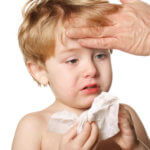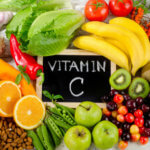 Diverticulitis is a disease that affects the lower area of the large intestine and the colon. The exact cause for this disease is not known, but it is more common in people over the age of 40. The disease is characterized by small sac like pockets developing in the colon’s lining. These sacs are called diverticula.
Diverticulitis is a disease that affects the lower area of the large intestine and the colon. The exact cause for this disease is not known, but it is more common in people over the age of 40. The disease is characterized by small sac like pockets developing in the colon’s lining. These sacs are called diverticula.
There are some people who have these sacs and do not develop any symptoms at all. However, when these diverticula become inflamed or infected, symptoms such as nausea, vomiting, bloating, abdominal pain, bloody stools, and others may occur.
While there is no exact known cause for this disease, there has been research that has shown that development of diverticulitis is linked to a person’s dietary habits. Since diverticulitis is a disease that affects the digestive system, it is easy to see why the foods that you eat can be the cause of it. Since diet is one of the main causes of diverticulitis, it is important to consider the types of foods that you should avoid if you have been diagnosed with the disease.
Here are thirteen of the most common foods that should be avoided in order to help alleviate the symptoms associated with diverticulitis.
1. Red Meat
People who suffer from acute diverticulitis, which can cause short term discomfort or sporadic flares of symptoms, should avoid eating red meat. Red meat is difficult for the body to digest and moves through the bowels slowly. This can further irritate the bowels, which are already inflamed and stressed. In addition, red meat may cause constipation in people who have a lower number of digestive enzymes. Instead of eating red meat, people who suffer from diverticulitis should stick to leaner proteins such as chicken and fish. While eating small amounts of red meat is okay, white meat should be eaten more frequently.


